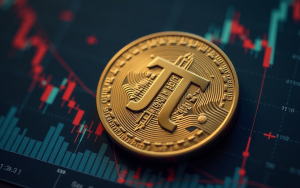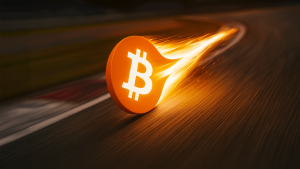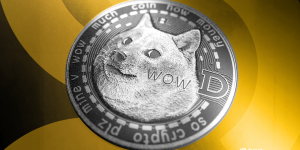Why Goldman Sachs Believes AI Stocks Are Not in a Bubble

While several investors call the artificial intelligence (AI) rally a bubble and adopt a bearish stance, Goldman Sachs believes that AI stocks still have a big future ahead of them.
The disruptive boom in a particular sector drives investors’ optimism. Then the money from venture capitalists (VCs) and retail investors starts flowing into that particular sector.
After a point, due to excessive optimism, the stocks get into an overvalued zone, often termed as a bubble. The dot com bubble of the early 2000s being a perfect example.
Largest 15 Companies Are Driving S&P 500
While the S&P 500 index has been in an uptrend, the largest 15 companies contributed more than 90% of the rally. The screenshot below helps visualize the contribution of the companies to the overall index rally.
According to Goldman Sachs research, AI companies, semiconductor manufacturers, and cloud service providers gave around 60% returns year-to-date. Due to this and the extraordinarily high return concentration, some believe the market is in an AI bubble.
Read more about the best artificial intelligence companies in 2023
But Peter Oppenheimer, the chief global equity strategist at Goldman Sachs, believes that AI stocks are not in a bubble despite the rally. He wrote in a report:
“We believe we are still in the relatively early stages of a new technology cycle that is likely to lead to further outperformance.”
AI Compared With Dot Com Bubble
Bill Smead, the founder and CEO of Smead Capital Management, compared AI stock valuations to the dot com bubble. In a letter, he said:
“This financial euphoria episode has gone to a sustained high that makes the dot-com bubble look like small change.”
BeInCrypto reported earlier that SkyBridge Capital founder Anthony Scaramucci also believes that AI stocks are in a bubble. However, Goldman Sachs argues that the valuation of AI stocks is not as stretched as the dot com bubble, citing that the companies have “unusually strong balance sheets and returns on investment.”
Oppenheimer also tried to explain his point on the basis of the price-earning (P/E) ratio. While he agreed that the valuation of AI stocks is high, he believes that it is not as high as the dot com mania. The Goldman Sachs analyst wrote:
“Compared with the 10-year median and range, the current price-to-earnings (P/E) ratio for the US technology sector is right at the top. But that’s not the whole story.
“The seven biggest US companies seen as leaders in the race to commercialize generative AI technology have an average P/E of 25. That compares with a P/E of 52 for the biggest companies at the peak of the internet bubble.”
Time to Exercise Caution
While experts would have varying opinions, retail investors should exercise caution while investing in AI stocks at current valuations. During the bubble, investors often stop researching and follow the herd mentality.
The dot com bubble, ICO bubble, and last year’s collapse of TerraLuna and the FTX ecosystem are some of the examples of the huge collapses that wiped out investors’ capital.
Read more about the fall of FTX.
Indeed, AI has huge growth potential, but FOMOing into any stocks at overvaluation may invite a financial disaster for investors.
Do you have anything to say about Goldman Sachs AI or anything else? Write to us or join the discussion on our Telegram channel. You can also catch us on TikTok, Facebook, or X (Twitter).
For BeInCrypto’s latest Bitcoin (BTC) analysis, click here.
Disclaimer
In adherence to the Trust Project guidelines, BeInCrypto is committed to unbiased, transparent reporting. This news article aims to provide accurate, timely information. However, readers are advised to verify facts independently and consult with a professional before making any decisions based on this content.













